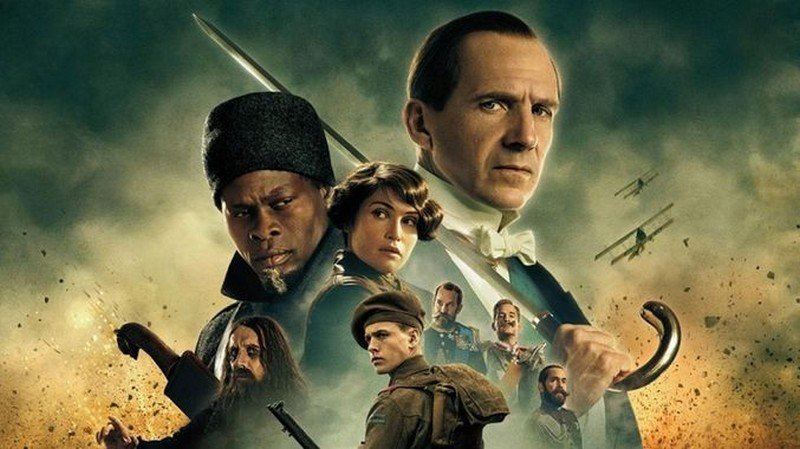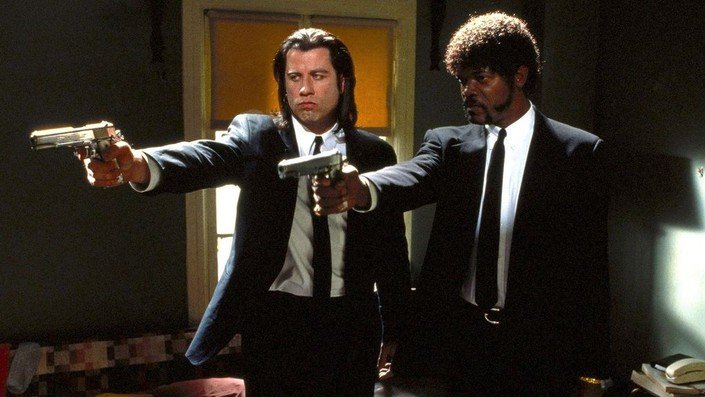
The Kingsman franchise has captivated audiences with its stylish action, irreverent humor, and high-stakes espionage. When news broke that a prequel film, The King’s Man, was in the works, fans were eager to delve into the origins of this secretive organization. Directed by Matthew Vaughn, the film promised to transport viewers to the tumultuous backdrop of World War I, weaving a tale of historical figures and fictional characters.
Navigating the Complexities of World War I
One of the film’s primary strengths lies in its ambitious attempt to weave historical figures and events into the Kingsman mythos. As Ben notes, the backdrop of World War I provides a rich tapestry for the story, offering a “varied number of historical characters” and a “strong context” for the narrative to unfold.
The film introduces us to key players of the era, including Tsar Nicholas II, Kaiser Wilhelm II, and King George V, all portrayed by the talented Tom Hollander. Additionally, the inclusion of figures like Archduke Franz Ferdinand and Grigori Rasputin adds a layer of intrigue and historical significance to the proceedings.
Dalenogare praises the film’s “historical reading” and the “authority” with which these historical characters are presented, suggesting that the director’s efforts to ground the story in real-world events are commendable. However, he also acknowledges that this focus on the historical context sometimes overshadows the core Kingsman narrative, with the “new characters” becoming “secondary” to the larger historical drama.
The film’s exploration of the geopolitical tensions and power struggles of the era is a strength, even if it is presented in a somewhat simplified manner.
The depiction of the horrors of trench warfare and the trauma experienced by the characters adds emotional weight to the proceedings.
However, the balance between the historical elements and the Kingsman franchise’s signature style and tone is not always seamless, leading to moments where the film struggles to find its footing.
Struggling to Integrate the Kingsman Mythos
One of the key challenges that The King’s Man faces is its attempt to simultaneously establish the origins of the Kingsman agency while also adhering to the narrative established in the previous films. Ben notes that the film “has problems in telling the origin of the intelligence agency” and struggles to “articulate the interaction between historical characters and fictional characters.”
The protagonist, Orlando Oxford, portrayed by Ralph Fiennes, is a pacifist who is thrust into the tumultuous events of the war. Ben observes that this character arc “ends up being discussed in the Grand Finale of this production,” suggesting that the film’s attempts to balance Oxford’s personal journey with the larger historical context are not entirely successful.
Additionally, the film’s efforts to incorporate elements from the previous Kingsman films, such as “articulations that were made in the first film,” feel somewhat forced and disconnected. Ben notes that “the story just isn’t enough” to fully integrate these franchise-specific elements, leading to a sense of disjointed storytelling.
The film struggles to seamlessly weave the Kingsman mythos into the historical setting, resulting in moments where the two elements feel at odds with each other.
The protagonist, Orlando Oxford, is an intriguing character, but his personal arc is sometimes overshadowed by the larger historical events.
The attempts to connect The King’s Man to the previous films in the franchise feel like an afterthought, further contributing to the sense of a disjointed narrative.
Uneven Tone and Inconsistent Execution
One of the most significant criticisms Ben levels at The King’s Man is its uneven tone and inconsistent execution. The reviewer notes that the film has “problems for mixing comedy, history, and action” and that the “comedy and action in specific moments” do not always work effectively.
Ben points to the film’s handling of the character Grigori Rasputin as a prime example of this tonal imbalance. The film attempts to position Rasputin as an antagonist, but then “tries to joke with his symbolism, with his mysticism.” This results in a character that feels tonally disjointed, leaving the audience unsure whether to take him seriously or not.
Furthermore, Ben expresses disappointment with the film’s “recycled and beaten” jokes, which he feels are “unjustified” in the context of the film’s historical setting and dramatic themes. The reviewer suggests that the director, Matthew Vaughn, “sometimes throws everything up in the air during the writing of the script” and decides to prioritize his own “more interesting” story over the historical elements.
The film struggles to balance its comedic elements with the more serious, dramatic themes, resulting in tonal inconsistencies.
The handling of the character Grigori Rasputin exemplifies this issue, with the film unable to decide whether to treat him as a legitimate threat or a source of comedic relief.
The inclusion of “recycled and beaten” jokes feels out of place in the context of the film’s historical setting and dramatic narrative.
A Missed Opportunity for Greatness
Despite its shortcomings, Ben acknowledges that The King’s Man had the potential to be a truly great film. The reviewer notes that the film “had a lot of potential” and “wanted to bring a good backstory about World War I in a more casual way, articulating various jokes.” However, the execution ultimately falls short, leaving the audience with a sense of disappointment.
Ben’s critique suggests that the film’s ambition to blend historical elements with the Kingsman franchise’s signature style was a noble one, but the final product fails to fully realize this vision. The reviewer laments that the film “doesn’t manage to establish and situate the Kingsman franchise in the middle of all this,” ultimately leaving the audience with a disjointed and unsatisfying experience.
The reviewer’s assessment of the film’s post-credits scene as “one of the worst post-credits scenes” he has ever seen further underscores the sense of disappointment. This scene, intended to set up future installments in the franchise, is described as “terrible” and “a very questionable line of argument” in the context of the film’s overall narrative.
The film had the potential to be a truly great entry in the Kingsman franchise, blending historical elements with the series’ signature style and tone.
However, the execution falls short, resulting in a disjointed and unsatisfying experience that fails to fully integrate the historical context with the Kingsman mythos.
The reviewer’s critique of the film’s post-credits scene further underscores the sense of disappointment, suggesting that the filmmakers missed an opportunity to set up future installments in a more compelling way.
A Flawed Prequel with Unrealized Potential
In the end, The King’s Man stands as a flawed prequel that struggles to balance its historical ambitions with the established Kingsman franchise. While the film boasts impressive production values, a talented cast, and an intriguing premise, it ultimately fails to deliver a cohesive and satisfying experience.
Ben’s review highlights the film’s inability to seamlessly integrate the Kingsman mythos with the historical context of World War I, leading to moments where the two elements feel at odds with each other. The uneven tone, inconsistent execution, and questionable creative decisions further contribute to the sense of a missed opportunity.
Despite these shortcomings, the reviewer’s assessment suggests that The King’s Man had the potential to be a truly great entry in the Kingsman franchise. The film’s ambition to explore the origins of the secretive organization against the backdrop of a pivotal moment in history is commendable, but the final product falls short of realizing this vision.
For fans of the Kingsman series, The King’s Man may be a disappointment, as it fails to fully capture the spirit and energy of the previous films. However, the film’s flaws may also serve as a learning experience for the filmmakers, providing an opportunity to reflect on how to better integrate historical elements with the franchise’s signature style in future installments.


